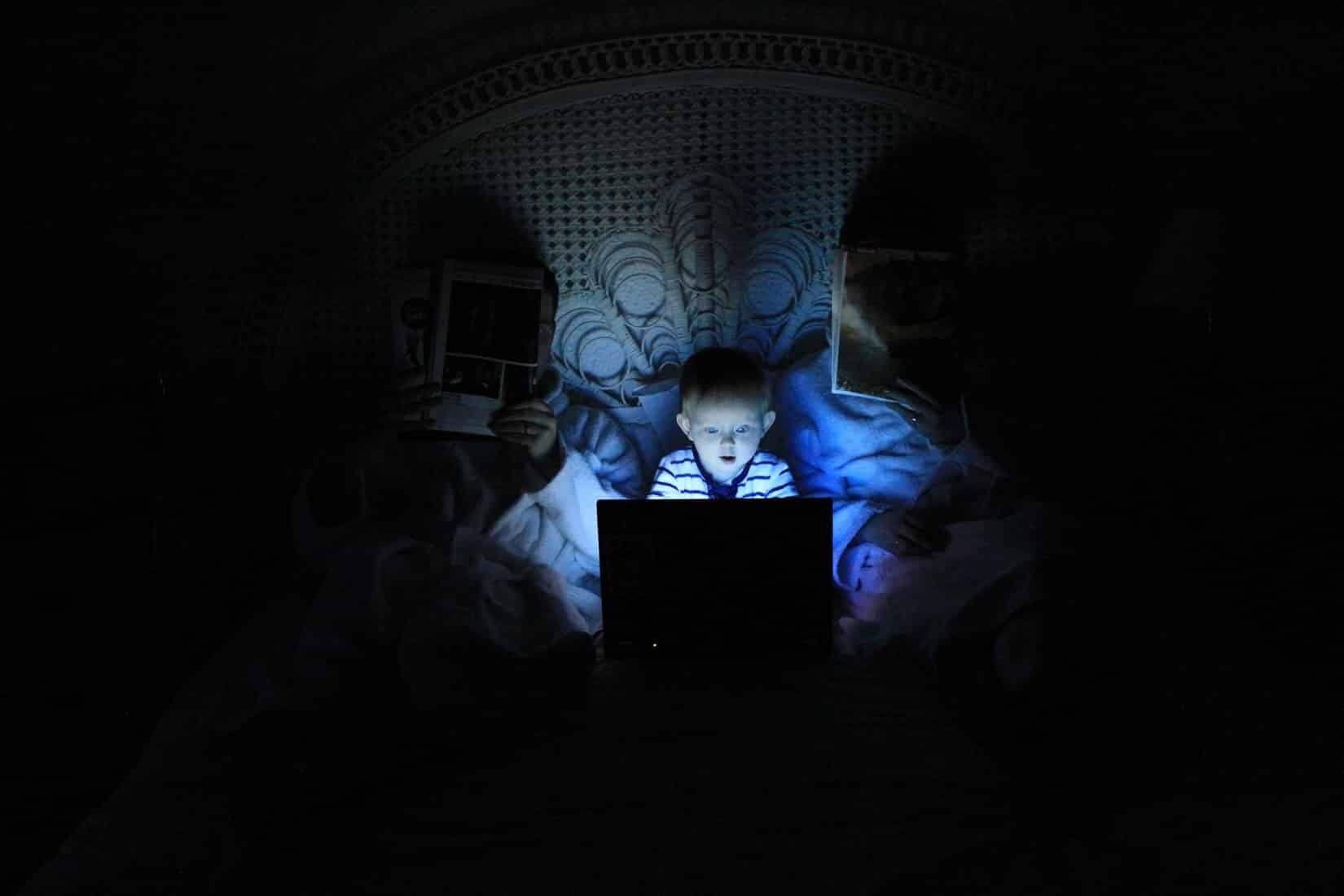
Jerri Jorgensen, co-owner of pornography addiction treatment facility Desert Solace, explains how to talk to your kid about porn and addiction. She gets that it can be difficult to discuss adult websites with children who may accidentally come across these sites on smartphones and tablets.
Because children are connecting to the Internet at increasingly younger ages, it’s becoming more and more difficult to make sure that all of the content they consume is child-friendly.
When children accidentally come across adult images online, they may not have context for what they see. Depending on the messages they’ve received from parents, they may be frightened of, feel shame towards, or become fixated on pornographic imagery.
In an interview with the In My Head podcast, Jorgensen stressed the importance of preparing children for the adult side of the Internet. After helping her husband work through his pornography addiction, the couple has opened Desert Solace, a porn addiction rehab to help others find freedom from addiction.
Related: What Makes Pornography Addiction Different
It's Not Easy to Know The Best Way How to Talk to Your Kid About Porn
Jorgensen said that her husband was first exposed to pornography “around age 11 or 12.”
Growing up, Jorgensen said that her husband “would never smoke, would never drink, would never take drugs — I mean, I don’t know if he even swore back then.”
Still, Jorgensen said that when her husband first found pornography, “it really did grab him.”
While Jorgensen’s husband may not have been immediately addicted, she said that repeated exposure led to a kind of dependence.
“And back then, it was Playboys,” said Jorgensen. “What’s on the Internet now, and on our mobile devices and stuff is way beyond that. And so what our kids are seeing now, they’re seeing that first exposure usually around 5 or 6 years old.”
Because smartphones and tablets are everywhere, Jorgensen suggests using age-appropriate language to start discussing pornography as early as pre-school.
“You’ve got to start talking about (adult imagery) early,” Jorgensen said. “How early? Two or three years old. Appropriately. About our bodies and that kind of stuff. And what (pornography) is.”
Jorgensen said if parents instill a sense of shame, their children may feel as if they’re “bad” just for viewing an image by accident. This shame can lead to porn addiction or sex addiction later in life.
“(Pornography addiction) is a shame driven disease,” Jorgensen explained. “A lot more than drugs and alcohol (are).”
When asked how to approach the subject of pornography with children, Jorgensen said that the most important thing is avoiding anger and shame.
“Keep those lines of communication open, where you are a safe place,” Jorgensen said.
If a child has already found a pornographic image, they may feel unsafe if parents react in anger. It’s very important to know how to talk to your kid about porn in a healthier way.
“It’s not a matter of, ‘You saw this, so you’re bad.’” Jorgensen explained. “If they hear ‘this is bad,’ (they’ll go on to think) ‘well, I looked at it, so I guess that means I’m bad.’ And that’s why I don’t like that verbiage.”
Jorgensen believes children will benefit more from explanations that focus on “why” pornography is harmful, and how to make good choices to develop healthy minds.
“I like the verbiage of ‘this isn’t going to take you in a direction you want to go. This is not going to get you what you want,” Jorgensen said.
To parents who have already reacted in anger or whose children are already experiencing shame when they accidentally encounter adult imagery, Jorgensen said it’s never too late to reframe the conversation.
“Some moms … may be listening to this and going, ‘Well, I already blew that one out of the water,” Jorgensen said. “It’s okay. You get back up.”
Jorgensen stressed that the focus of conversations should be on fostering connections, and how those human connections suffer when we substitute pornography for interacting with other people respectfully.
“It’s not about ‘Oh, well, you screwed up, so I am going to punish you by giving you the silent treatment for two hours.’” Jorgensen explained. “That’s crazy. And it makes everybody miserable. We love (our children) and we make sure it’s safe to talk.”
Desert Solace is an inpatient addiction treatment center in St. George, Utah. Desert Solace specializes in the treatment of pornography and sex addictions. Additionally, they offer treatment programs for gaming, gambling and substance abuse. Their inpatient facility for porn, sex, gaming, gambling and substance addictions features professional, licensed counselors, a professional chef, equine therapy and more. With ongoing outpatient support for patients and their loved ones via phone calls and online messaging, Desert Solace believes in involving the client’s family in the recovery process.
Desert Solace
451 N Meadow Dr.
Dammeron Valley, UT 84783, USA
info@desertsolace.com
(435) 817-1351
Read More Articles About Porn Addiction Recovery

Benefits of a Certified Sex Addiction Therapist
There are a number of fields where certified training for professionals is quite valuable to the people who utilize their services, and sex addiction therapists

Is Sex Addiction a Mental Illness? Key Considerations
There are several questions that often arise among those who deal with sex addiction or others close to them, and some of them revolve around

Why is Pornography So Addictive?
It’s common for those struggling with addiction or those close to them to wonder exactly how a given form of addiction can take such a
How To Talk To Your Kids About Pornography & Addiction
https://desertsolace.com/how-to-talk-to-your-kids-about-pornography-addiction/
Desert Solace / Sex Addiction Treatment Center / How to Talk to Your Kid About Porn / Pornography Addiction / Sex Addiction / Inpatient Pornography Addiction Treatment / Porn Sex Rehab / Porn Addiction Rehab / Sexual Addiction Recovery Center